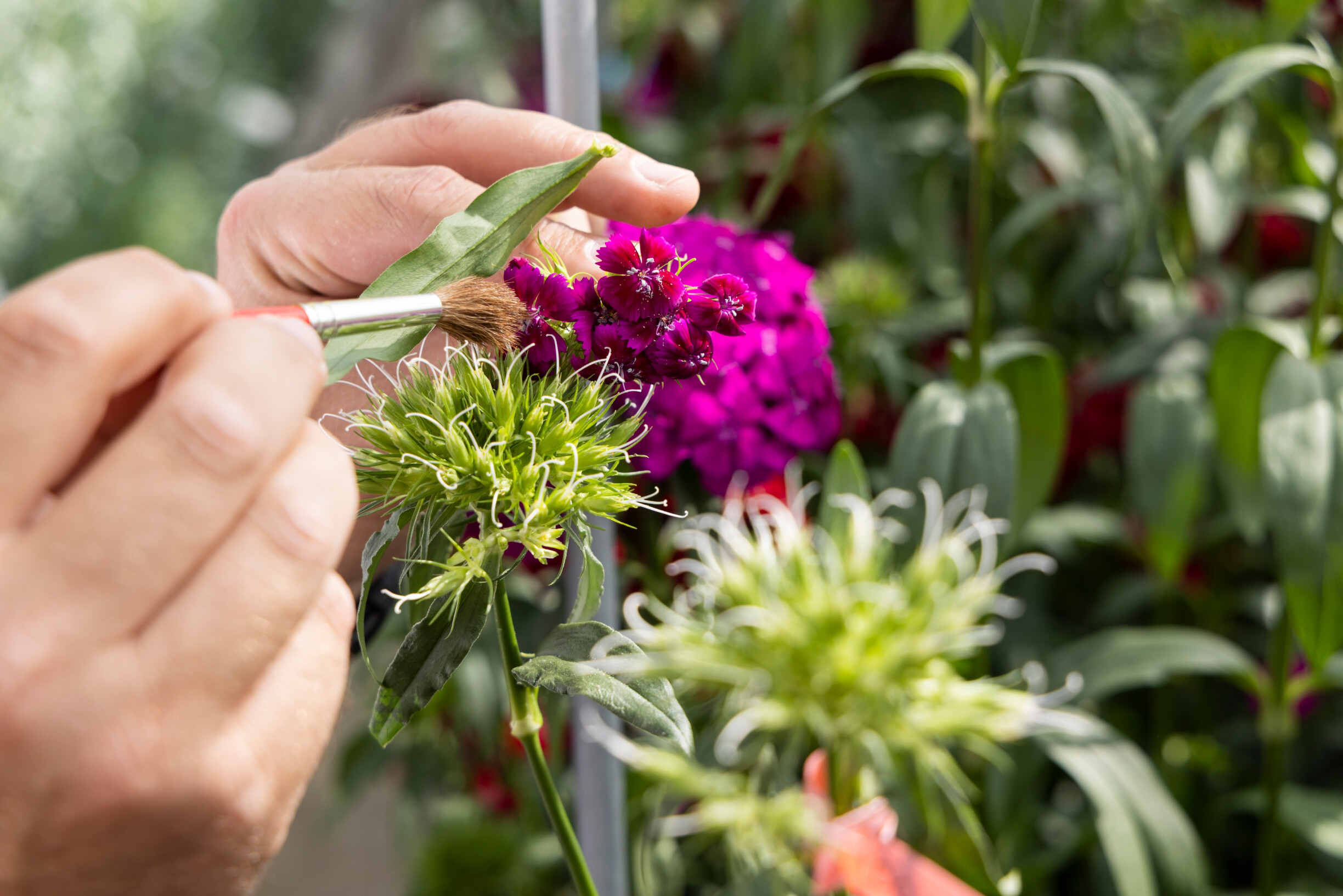Sustainability in flower and plant breeding
.jpg?w=2560&fm=jpeg)
In addition to all the flowers and plants already available on the market, new and improved varieties are constantly being developed by breeders. As the first link in the entire floriculture chain, breeders have a big role to play when it comes to sustainability. In this article, you will read all about this process and the role of sustainability in developing new supply.
The influence of consumers and sustainability in breeding choices
Consumers attach increasing importance to sustainably grown flowers and plants; there is no way around this anymore. Step by step, more and more is coming out about what the industry is doing for a green future. Examples include recycling, minimising protective equipment and organic cultivation. Less known is what actually happens in the steps before this, in the creation of brand-new flower and plant varieties.
Resilience
For reducing protectants, genetic resistance of flowers is essential. This means that the flower is more resistant to diseases, pests and other stress factors. Flowers with strong character traits are crossed with each other to develop a more resilient product. This will require less resources and attention from the grower in the greenhouse. Resistance of flowers and plants ultimately contributes to the satisfaction of consumers, who can also enjoy healthier flowers in their homes and gardens for even longer.
Climate
A selection of genetics is being developed so that cooler cultivation and even outdoor cultivation can become more common. This environmentally friendly approach ultimately results in energy savings. Conversely, products are developed that perform better in dry and warm climates, so less water is used to grow them. By optimally tailoring cultivation programmes to season and location, great strides are made.
On the 365 dagen bloemen website, you can find the availability of all seasonal flowers per product.
Breeding and production
After the new varieties are selected from the breeding process, to enter the market commercially, they are propagated and the starting material for growers is produced. This may be in the form of young plants or seeds. Sustainability also plays a major role in this process.
In the production of young plants, circularity is increasingly central, with a focus on reuse and waste reduction. Chemical crop protection agents are being phased out and replaced by biological methods, such as natural pesticides.
As breeders and starter material production companies ensure more sustainable flower and plant starts, the entire chain can develop further. This makes it possible, for example, to calculate complete footprints and inform consumers even better about what steps are being taken for a more sustainable bouquet on the table!
Would you like to be kept informed about the latest news, events and interesting updates?
SubscribeThe '365 days of flowers' campaign is an initiative of the promotion committee 365 days of flowers, part of Royal FloraHolland. Over 1,800 growers from 15 different countries make this possible. They grow over 150 different flowers, which are promoted throughout the year based on Royal FloraHolland's availability dates. The objective of the '365 days of flowers' campaign is to jointly develop sales opportunities for florists.
Collaborate? We can be reached at [email protected] .
